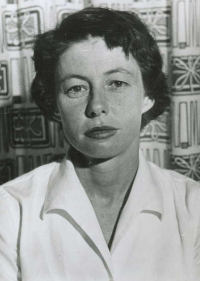
Helen Garner is an Australian novelist, short-story writer, screenwriter and journalist. Garner's first novel, Monkey Grip, published in 1977, immediately established her as an original voice on the Australian literary scene–it is now widely considered a classic. She has a reputation for incorporating and adapting her personal experiences in her fiction, something that has brought her widespread attention, particularly with her novels, Monkey Grip and The Spare Room (2008).

Michael Wilding is a British-born writer and academic who has spent most of his career at the University of Sydney in Sydney, Australia. He is known for his work as a novelist, literary scholar, critic, and editor. Since 2002 he is Emeritus Professor in English and Australian Literature at the University of Sydney.

Thea Beatrice May Astley was an Australian novelist and short story writer. She was a prolific writer who was published for over 40 years from 1958. At the time of her death, she had won more Miles Franklin Awards, Australia's major literary award, than any other writer. As well as being a writer, she taught at all levels of education – primary, secondary and tertiary.
Gerald Murnane is an Australian writer, perhaps best known for his novel The Plains (1982). The New York Times, in a big feature published on 27 March 2018, called him "the greatest living English-language writer most people have never heard of".
Alan Wearne is an Australian poet.
Laurence James Duggan, known as Laurie Duggan, is an Australian poet, editor, and translator.

Australia in the War of 1939–1945 is a 22-volume official history series covering Australian involvement in the Second World War. The series was published by the Australian War Memorial between 1952 and 1977, most of the volumes being edited by Gavin Long, who also wrote three volumes and the summary volume The Six Year War.
Joe Wilson is a fictional character appearing in several well-known short stories by Australian writer Henry Lawson. Joe Wilson first appeared in "Brighten's Sister-in-law," the first story Lawson wrote after his arrival to England, and the longest he had ever written up to that time. It was first published in Blackwood's Magazine in November 1900.

The Monthly is an Australian national magazine of politics, society and the arts, which is published eleven times per year on a monthly basis except the December/January issue. Founded in 2005, it is published by Melbourne property developer Morry Schwartz.
Dr. Kerryn Lee Goldsworthy is an Australian freelance writer and former academic.
M. Barnard Eldershaw was the pseudonym used by the twentieth-century Australian literary collaborators Marjorie Barnard (1897–1987) and Flora Eldershaw (1897–1956). In a collaboration that lasted two decades from the late 1920s to the late 1940s, they published 5 novels, 3 histories, a radio drama, a collection of short stories, and several collections of critical essays and lectures.
This article presents a list of the historical events and publications of Australian literature during 2004.

Air Commodore Peter Frank Raw, was a senior officer and pilot in the Royal Australian Air Force (RAAF). He saw combat in a heavy bomber unit in the European theatre during the later stages of World War II and as a senior officer in the Vietnam War, and served in many flying, training and administrative roles.

David Robert Walker is an Australian academic historian who has been the professor of Australian studies at Deakin University since 1991. He is a leading authority in the study of Australian perceptions of Asia.

The Natural Way of Things (2015) is a novel by Australian writer Charlotte Wood. It won the Stella Prize, for writing by Australian women, in 2016.
The Wind at Your Door (1959) is a one-poem volume by Australian poet R. D. Fitzgerald. The poem was originally published in The Bulletin on 17 December 1958, and later in this 275 copy Talkarra Press limited edition, signed by the author. It won the Grace Leven Prize for Poetry in 1959.
Josephine Moon is an Australian author, based in Cooroy, Queensland. She has worked as an English teacher and editor. She has a Bachelor of Communications. She changed to a writing career after having Chronic fatigue syndrome.
Lisa Gorton is an Australian poet, novelist, literary editor and essayist. She is the author of three award-winning poetry collections: Press Release, Hotel Hyperion, and Empirical. Her novel The Life of Houses, received the NSW Premier's People's Choice Award for Fiction, and the Prime Minister's Award for Fiction (shared). Gorton is also the editor of Black Inc's anthology Best Australian Poems 2013.
The University of New South Wales Press Ltd. is an Australian academic book publishing company launched in 1962 and based in Randwick, a suburb of Sydney. The ACNC not-for-profit entity has three divisions: NewSouth Publishing, NewSouth Books, and the UNSW Bookshop, situated at the Kensington campus of the University of New South Wales, Sydney.
Daniel Davis Wood is an Australian author who is known for the novels Blood and Bone and At the Edge of the Solid World.








